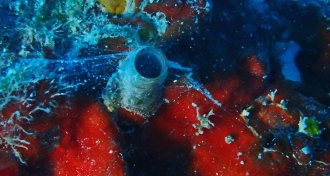Earth
Sign up for our newsletter
We summarize the week's scientific breakthroughs every Thursday.
-
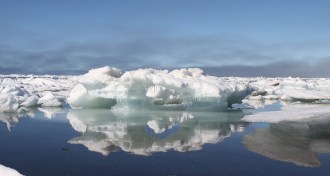 Climate
ClimateRadical idea could restore ice in the Arctic Ocean
Windmill-powered pumps on buoys throughout the Arctic Ocean could help bring back shrinking sea ice, researchers say.
By Sid Perkins -
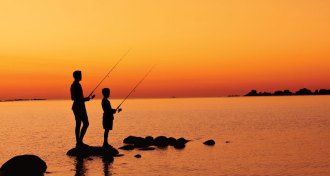 Climate
ClimateLakes worldwide feel the heat from climate change
Lakes worldwide are warming with consequences for every part of the food web, from algae, to walleye, to freshwater seals.
-
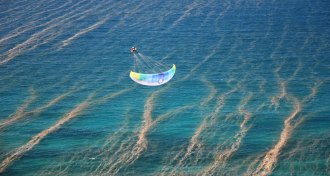 Climate
ClimateOcean acidification may hamper food web’s nitrogen-fixing heroes
A new look at marine Trichodesmium microbes suggests trouble for nitrogen fixation in an acidifying ocean.
By Susan Milius -
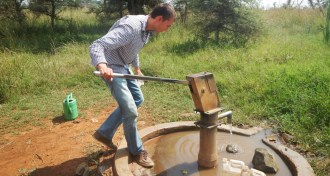 Environment
Environment‘Fossil’ groundwater is not immune to modern-day pollution
Ancient groundwater that is thousands of years old is still susceptible to modern pollution, new research suggests.
-
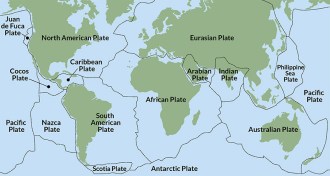 Earth
Earth50 years ago, continental drift began to gain acceptance
Half a century later, plate tectonics is well-established but still an active field of research.
-
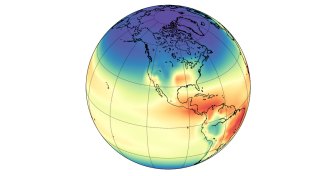 Climate
ClimatePlot twist in methane mystery blames chemistry, not emissions, for recent rise
The recent rise in atmospheric methane concentrations may have been caused by changes in atmospheric chemistry, not increased emissions from human activities, two new studies suggest.
-
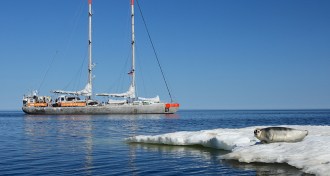 Oceans
OceansThe Arctic is a final garbage dump for ocean plastic
Ocean currents dump plastic garbage from the North Atlantic into previously pristine Arctic waters, new research shows.
-
 Oceans
OceansThe Arctic is a final garbage dump for ocean plastic
Ocean currents dump plastic garbage from the North Atlantic into previously pristine Arctic waters, new research shows.
-
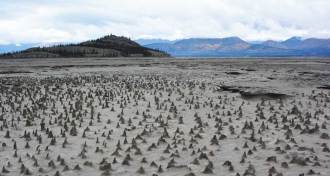 Earth
Earth‘River piracy’ on a high glacier lets one waterway rob another
The melting of one of Canada’s largest glaciers has rerouted meltwater from one stream into another in an instance of river piracy.
-
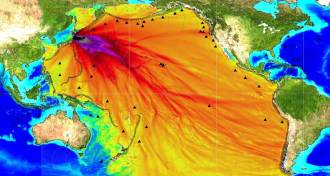 Oceans
OceansMore than one ocean motion determines tsunami size
The horizontal movement of the seafloor during an earthquake can boost the size of the resulting tsunami, researchers propose.
-
 Chemistry
ChemistryNew tech harvests drinking water from (relatively) dry air using only sunlight
A prototype device harvests moisture from dry air and separates it into drinkable water using only sunlight.
-
